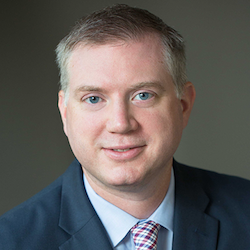

In late 2022, Netflix released the film “The Good Nurse,” along with the documentary “Capturing the Killer Nurse.” The films are about Charles Cullen, a nurse who murdered dozens, if not hundreds, of people while working at New Jersey and Pennsylvania healthcare facilities. The new films serve to remind healthcare entities and professionals about their legal reporting requirements, which arose in response to the Cullen case.
Over 16 years, Cullen moved through 10 different facilities in New Jersey and Pennsylvania, including a nursing home. He killed patients by injecting their IV bags with common drugs such as insulin and digoxin. He was finally caught after a coworker became suspicious of him and contacted law enforcement.
Cullen’s confession and 2006 incarceration spurred New Jersey to adopt the Health Care Professional Responsibility and Reporting Enhancement Act, or HCPRREA, in 2005. The law sought to address the failure of the healthcare system to flag Cullen. It is also known as the Cullen Law.
As a result of these horrific crimes, dozens of states passed similar legislation to prevent healthcare professionals like Charles Cullen from slipping through the cracks and evading law enforcement.
The HCPRREA requires healthcare entities and professionals to notify the state Division of Consumer Affairs or Board of Nursing/Medical Examiners if they have information that reasonably indicates that another professional has demonstrated an impairment, gross incompetence or unprofessional conduct that would present an imminent danger to a patient or to the public. Although legislation varies by state, other laws are substantially similar.
What you need to report
In New Jersey, the law defines a healthcare entity as a licensed healthcare facility, such as a long-term care facility, a hospital, an outpatient clinic, a home care services agency and others. Owners, operators, providers, employees and contractors of independent living, assisted living, memory care and continuing care retirement communities all fall under the law and have obligations to report.
Some examples of events that would require a report from an entity, operator or professional:
- Discharge or termination of a healthcare professional.
- Removal of a healthcare professional from the list of eligible employees of a health services agreement.
- Temporary or permanent suspension or revocation of a professional’s practice.
- Termination or recension of a contract with a healthcare professional to render professional services.
- The placement of limitations or conditions on the exercise of clinical privileges because of impairment, incompetency or professional misconduct that relates adversely to resident/patient care or safety.
- The voluntary resignation of a professional during an investigation into conduct, especially relating to impairment or incompetence that could affect resident/patient care or safety.
- Placing a professional under review and granting leave of absence for reasons related to a physical, mental or emotional condition or drug/alcohol use that impairs his or her ability to practice with reasonable skill and safety, except that no report is required (due to confidentiality) for pregnancy-related leaves of absence or if the professional has sought assistance from approved assistance or treatment programs.
- If a professional is party to a medical malpractice liability suit, to which the healthcare entity also is a party, and where there is a settlement, judgment or arbitration award.
Entities and professionals do not have to report professional misconduct relating to tardiness, insubordination or similar behaviors if they do not relate to resident/patient care or safety.
It is recommended that you carefully review the applicable law in the state where you are licensed or employed, as the applicability varies.
How to comply with the Cullen Law
In New Jersey, healthcare entities and professionals must file reports with the state Division of Consumer Affairs, health care professional information clearing house coordinator. There are separate forms for entities and professionals.
Facilities also may file inquiries with other entities about a healthcare professional and should be prepared to respond to inquiries from other entities as well.
Again, it is important to consult with the appropriate state agency in the state where your community is located and/or where you are licensed.
Periodic reminders about the importance for compliance help keep residents and patients safe. The reasons for the Cullen Law are terrifying and heart-wrenching, but the new Netflix movies emphasize how better systemic reporting should help flag suspicious patterns.
Timothy J. Ford is a partner at Einhorn, Barbarito, Frost & Botwinick, PC, and a member of the law firm’s Business/Corporate Group. His practice areas include assisted living/senior residential legal issues, business/corporate, commercial litigation, and employment. He is a member of the LeadingAge New Jersey and Delaware Education Committee, among other professional activities.
The opinions expressed in each McKnight’s Senior Living guest column are those of the author and are not necessarily those of McKnight’s Senior Living.
Have a column idea? See our submission guidelines here.


